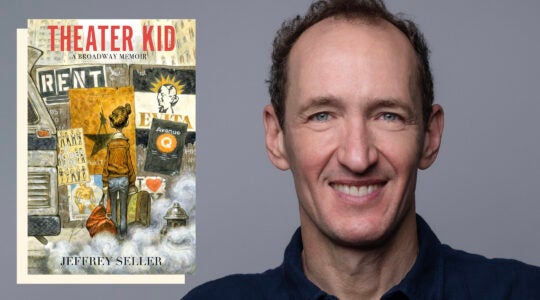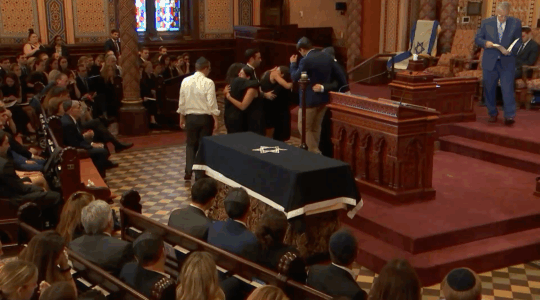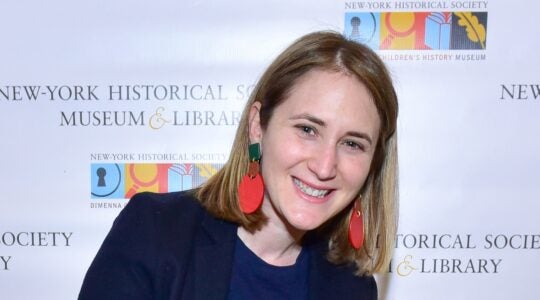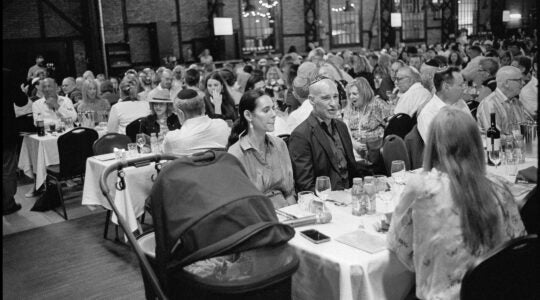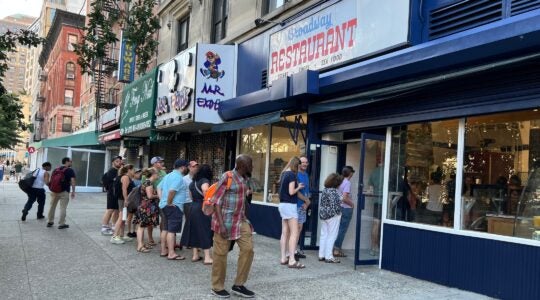Getting your Trinity Audio player ready...
The slide was just silvery and shiny, and all the kids were doing it. We were in my friend’s backyard, playing on her swing-set, and all the kids were taking turns walking down the slide. Yes, it was slippery, and yes, it was most certainly not safe. But, as a six-year-old, I didn’t know how to say no. So, I climbed the five steps up the slide’s ladder, took a deep breath, and began my descent. I slid down on the soles of my feet, accelerating along the way, until, at the bottom, I realized that I couldn’t stop myself. I went right off the edge of the slide, fell on my tuchas, and slammed my back against the metal edge. It knocked the wind out of me. I began to bawl.
My mom was chatting inside with the other parents, and she came running out at the sound of my cries. She cradled me and asked what happened. “I….I fell…I slipped off the edge of the slide” I lied, leaving out the part about trying to walk my way down.
And that’s how the story went in our family lore for six years.
This lie tormented me. I would obsess over it, feeling terrible that I had lied to my mother, and sad that she didn’t know the truth. Yet, I was also terrified that she would be furious when she learned that I had done something so dangerous, and so clearly against the rules. Each year, when the rabbi would encourage us kids at the Yom Kippur Family Service to turn to our parents and apologize to them for things we had done wrong, a part of me would always feel inauthentic, as this secret transgression remained untold.
It came to a head late one night, when I was about 12 years old. I could take it no longer. My parents were fast asleep, yet I finally had to come clean. I woke up my mother, nearly in tears: “Mom, I need to tell you something really important,” I began. I told her the truth about what happened, and then prepared for my fate. And…..all I heard was a soft chuckle. “Is that all? That’s okay!” My mother shushed me, told me that it was not as bad a situation as I had always feared, and that she knew that six-year-olds often made mistakes and then learned from them. She held me and calmed me until I was ready to go to sleep.
Looking back at this story, I am of two minds – part of me is still that terrified six-year-old, worried that I’ll get in trouble. The other part of me now hears stories from my friends who have become parents, and who giggle at the things that their young kids do as they learn about the world. My mother forgave me so quickly that night, and it took away much of the guilt. But it didn’t take away all of it.
At some point, we all have to learn how to forgive ourselves.
This is, of course, a relatively innocuous example of wrongdoing. So many of us carry longstanding guilt, an abiding sense of blame, or feelings of regret that never fade. We remember relationships that ended without explanation, times we should have helped a needy relative or friend, or times we let ourselves down. I should have….I could have….It would have been so much better if I…., and on and on…
Often, during the Hebrew month of Elul, and then during the High Holy Days, we focus much on forgiveness between ourselves and others, and between ourselves and God. These are so very important to the spirit of the day, and taking part in acts of teshuvah, repentance, do indeed help us along the path towards healing and a better New Year. Yet, how often do we get to spend time on forgiving ourselves?
Maybe this year can be the year in which we finally let go of something that we have felt guilty about for years. Perhaps we stop beating ourselves up about something that we “messed up.” Might we finally accept that we are not perfect, and that this imperfection is totally beautiful in and of itself?
Before each Bar and Bat Mitzvah, I make each student a promise (which I first learned from Rabbi Jonathan Stein, now President of the Central Conference of American Rabbis): I promise you that I will make a mistake. It will probably be a big one. We may even laugh about it. But the worship service is not about perfection, and it is not a performance. Rather, it is about doing our best, honoring this new chapter in our lives, and praising God.
Every day of our lives warrants the same promise: I promise you that we will all make mistakes. They may even be big ones, and we may even laugh (or cry!) about them. But life is not about perfection, rather it is about living each day to the fullest and always doing the best we can.
May 5772 be a good, sweet year for all! L’shanah tovah!
Rabbi Marci N. Bellows serves as rabbi of Temple B’nai Torah in Wantagh, NY. A graduate of Brandeis University, she was ordained by Hebrew Union College – Jewish Institute of Religion in 2004.
Jewish stories matter, and so does your support.
The New York Jewish Week brings you the stories behind the headlines, keeping you connected to Jewish life in New York. Help sustain the reporting you trust by donating today.
